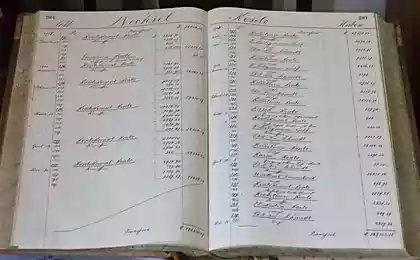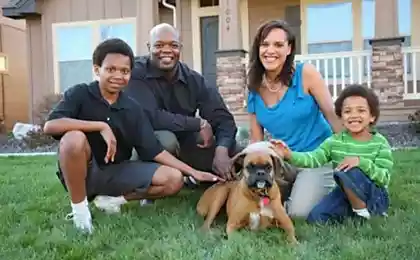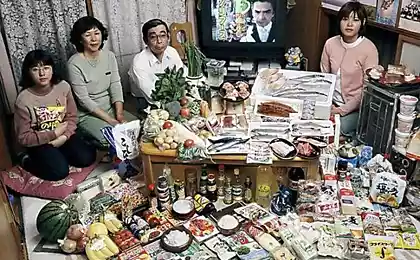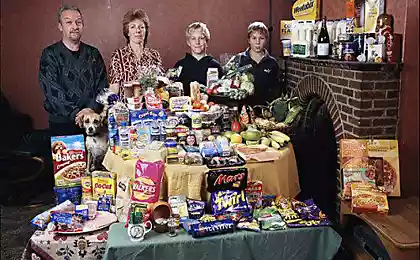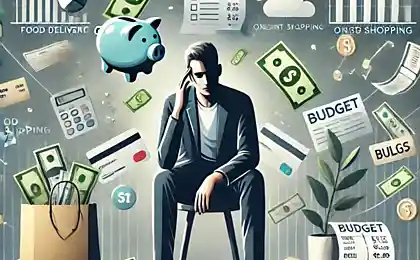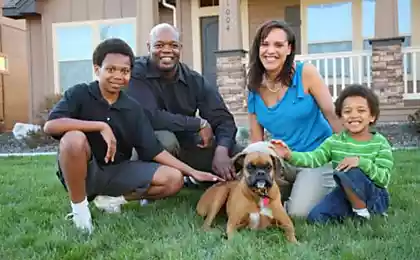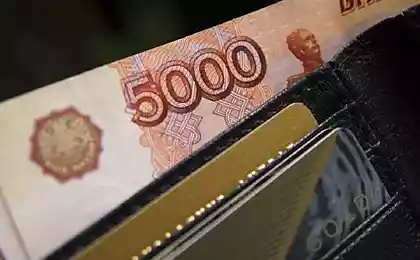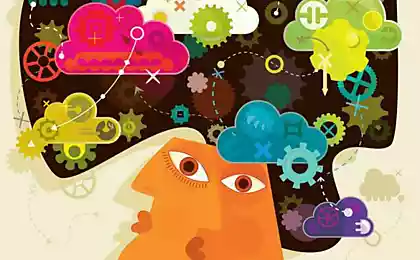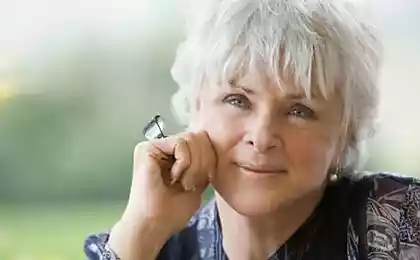507
You control money or money controls you
One of the basic soft skills – ability to handle finances. Especially in a crisis. Moreover, if you are very keen and know how to make money. And especially if you are already in middle age, and still have not learned, but believe in fairy tales and retirement.
Today is the synopsis of the book Vicki Robin, Joe Dominguez and Monica Tilford "trick or treat? You control money or money controls you".
Forty eight million one hundred fifty four thousand six hundred sixty six
Vicki Robin — public figure. Innovator, writer and speaker. Award from the Association of Co-op America and Sustainable Northwest. Participated in the establishment of associations on the Conversation Cafes, Sustainable Seattle and New Road Map. Author of ‘Visionaries: People and Ideas to Change Your Life’, ‘Blessing the Hands That Feed Us: What Eating Closer to Home Can Teach Us About Food, Community and Our Place on Earth’. In his spare time together with her troupe, Comedy Island performs with improvisational performances.
Joe Dominguez — was a successful financial analyst on wall street. At the age of 31 earned wealth enabled him to retire: this was possible thanks to his system of 9 steps. In the future, Joe Dominguez taught this concept at seminars and Vicki Robin describe her in the book "your money or your life?".
Monica Tilford — public figure. Member of the Board of Directors of the Association New Road Map. About 20 years working in the field of "sustainable consumption" and related environmental problems. For a long time collaborated with non-profit organizations The Center for a New American Dream (the center helps people to change consumer behavior), Wild Earth, and Carrying Capacity Network. As an instructor and speaker promotes the principles outlined in the book "your money or your life?".
About the book
The book "your money or your life?"not new, it came out in 1991. For the next edition of something rewritten, thrown out and replaced – actualized material. Some realities, recommendations and case studies still seem to be unconvincing because of differences in lifestyle, but in General, Russian society is now about at the stage of consumer development, which the American was already ten-twenty years ago (adjusted to the Russian reality and mentality).
We are mired in mortgages and loans; we have an economic and ideological crisis; millions of people thrown on the labour market; thriving collection agencies with polubanditskoe work style; with the funded part of pensions miracles happen; so barbaric style of consumer behavior with all the consequences in earth, air and water.
One of the main ideas of the book: reasonable consumption and the life of the program financial independence associated with the environmental situation. And it is getting worse, and this concerns all people around the world began to notice climate change in their area as a consequence of global warming. Consuming new products, we throw away the old (increasing landfill) encourage the extraction of resources (and they are not infinite), and manufacturing (and it's toxic and gives a lot of waste).
The world's leading companies with talented marketing got us into the idea that the new model is anything at all we have to judge people on devices. We depend on fashion, so often buy low quality and obviously not for long.
In General, enough is enough. Get the graph paper, start to draw the individual graphics instructions from the book and count the pennies. No, seriously. The idea is that it's not a shame: to know, to record what is cheaper, to buy only necessary, but a good and long time to use things to the maximum, not to drag into the apartment and closet beautiful stuff.
In general, not to live according to the celebrated line of mentality – soul. Because otherwise in a few decades you with a broad mind will remain in very straitened financial circumstances.
Here you can nitpick, but the point is not that you need to take goods from the lower shelves, buy blazers with leather elbows, embarrass friends by counting your expenses. And also to stop "stately walk "roundabout"," to carry into the house all you seemed nice, and change the smartphone every four months.
That is all in the framework of the program of course, but also, to learn how to work smarter, to change the psychology of attitude toward money, become knowledgeable in the field of investment, to realize the values and goals and change lives so that in their 30-40+ to reach the point of financial independence with understanding what activity will make you happy then.
Eighty three million six hundred five thousand seven hundred four
Ideas from the book
What else will you learn?
5 signs that you are richer than you think
What is the good life?
P. S. And remember, just changing your mind — together we change the world! ©
Source: zillion.net/ru/blog/4624/zillion-chtieniie-koshieliek-ili-zhizn-vy-kontroliruietie-dien-ghi-ili-dien-ghi-kontroliruiut-vas
Today is the synopsis of the book Vicki Robin, Joe Dominguez and Monica Tilford "trick or treat? You control money or money controls you".
Forty eight million one hundred fifty four thousand six hundred sixty six
Vicki Robin — public figure. Innovator, writer and speaker. Award from the Association of Co-op America and Sustainable Northwest. Participated in the establishment of associations on the Conversation Cafes, Sustainable Seattle and New Road Map. Author of ‘Visionaries: People and Ideas to Change Your Life’, ‘Blessing the Hands That Feed Us: What Eating Closer to Home Can Teach Us About Food, Community and Our Place on Earth’. In his spare time together with her troupe, Comedy Island performs with improvisational performances.
Joe Dominguez — was a successful financial analyst on wall street. At the age of 31 earned wealth enabled him to retire: this was possible thanks to his system of 9 steps. In the future, Joe Dominguez taught this concept at seminars and Vicki Robin describe her in the book "your money or your life?".
Monica Tilford — public figure. Member of the Board of Directors of the Association New Road Map. About 20 years working in the field of "sustainable consumption" and related environmental problems. For a long time collaborated with non-profit organizations The Center for a New American Dream (the center helps people to change consumer behavior), Wild Earth, and Carrying Capacity Network. As an instructor and speaker promotes the principles outlined in the book "your money or your life?".
About the book
The book "your money or your life?"not new, it came out in 1991. For the next edition of something rewritten, thrown out and replaced – actualized material. Some realities, recommendations and case studies still seem to be unconvincing because of differences in lifestyle, but in General, Russian society is now about at the stage of consumer development, which the American was already ten-twenty years ago (adjusted to the Russian reality and mentality).
We are mired in mortgages and loans; we have an economic and ideological crisis; millions of people thrown on the labour market; thriving collection agencies with polubanditskoe work style; with the funded part of pensions miracles happen; so barbaric style of consumer behavior with all the consequences in earth, air and water.
One of the main ideas of the book: reasonable consumption and the life of the program financial independence associated with the environmental situation. And it is getting worse, and this concerns all people around the world began to notice climate change in their area as a consequence of global warming. Consuming new products, we throw away the old (increasing landfill) encourage the extraction of resources (and they are not infinite), and manufacturing (and it's toxic and gives a lot of waste).
The world's leading companies with talented marketing got us into the idea that the new model is anything at all we have to judge people on devices. We depend on fashion, so often buy low quality and obviously not for long.
In General, enough is enough. Get the graph paper, start to draw the individual graphics instructions from the book and count the pennies. No, seriously. The idea is that it's not a shame: to know, to record what is cheaper, to buy only necessary, but a good and long time to use things to the maximum, not to drag into the apartment and closet beautiful stuff.
In general, not to live according to the celebrated line of mentality – soul. Because otherwise in a few decades you with a broad mind will remain in very straitened financial circumstances.
Here you can nitpick, but the point is not that you need to take goods from the lower shelves, buy blazers with leather elbows, embarrass friends by counting your expenses. And also to stop "stately walk "roundabout"," to carry into the house all you seemed nice, and change the smartphone every four months.
That is all in the framework of the program of course, but also, to learn how to work smarter, to change the psychology of attitude toward money, become knowledgeable in the field of investment, to realize the values and goals and change lives so that in their 30-40+ to reach the point of financial independence with understanding what activity will make you happy then.
Eighty three million six hundred five thousand seven hundred four
Ideas from the book
- Debts are growing, money is worthless, pensions are melting, the global economy deprives any guarantee, insurance system fail, you can at any time be without a job. Only rely on yourself – begin to live under the program of financial independence until later.
- If you try to calculate how much money earned in a lifetime, and pass through the house and evaluate each item purchased, you will be surprised – you are really able to earn good money.
- The paradox is that most people have a huge expenditure – maintenance of its position and status, as well as compensation of dissatisfaction and stress: you go to work, eat something plastic to spend huge money on treatment and "diversionary entertainment", buy a car, clothes, watches and shoes to impress those whom you do not care.
- According to the dictionary, "consume" – "to destroy fully, to use, to waste". We are witnessing the transformation of the economy: consumer spending will play a smaller role.
- Say to yourself often: "to Have savings is to be free."
- People who persistently carry out described in the book of the program, on average, reduce costs by 25% within 6 months and say their quality of life has improved.
- Jeffrey Colvin: "...we continue to inflate the real estate bubble. Finally, it is possible, we get closer to the explosion of the most unpleasant of all the bubble – bubble of life standards."
- Research Tom Kasser and Kirk brown: people who managed to make their lives easier, happier.
- Most likely, your house is full of junk. And, you've probably spent a lot of time doing something unpleasant to buy it all.
- In a week of 168 hours. The idea is that most people spend on making money 40 hours a week. In fact, much more – count the hidden financial and time costs. A simple test: what do you work for hire?
- When asked "What are you doing?"you answer: "I do this" – or called a profession?
- Financially independent thinking leads to financial awareness, financial integrity and financial independence.
- Disconnect between work and wages. Then you will be able to expand its range of opportunities to increase revenues.
- Your time is your life energy. You change it for money. Reducing costs means that you value your life energy.
- Most people suffer from "social diseases", which the therapist Douglas Labier described in the book 'Modern Madness': the focus on money leads to depression, anxieties and other disorders.
- We live in an era of growing wealth and vanishing nobility.
- Henry Ford: "We are people born for shopping. "Won someone who is richer than the grave"".
- Depression – shopping. Celebrate shopping. "Life not yet complete" shopping.
- Psychologists call money is the last taboo. It is easier to talk about their sex life than their money.
- Realizing that this stuff, you'll see it everywhere. Inventory. What is your trash is another.
- It is believed that money brings security, social recognition and sexual attraction. Actually no. What are your myths about money?
- Monitor received and spent every penny.
- Consultant in personal Finance Dave Ramsey: "Using credit cards instead of cash, you spend 12-18% more."
- Now the American dream is to "live lean".
- Many people who begin to live under the program of financial independence, come to the conclusion that the costs will be significantly reduced, if to quit my current job, and income will grow if you do that close.
- Learn to invest in reliable businesses. Develop your investment plan. It should include: capital (investment, income); allowance (money for 6 months in the Bank at interest); stash (gifts, recreation reserve, etc.).
- Life is not just work.
What else will you learn?
- Sound like 3 questions that will transform your life.
- What is a "financially independent (PV) thinking."
- What are 10 best ways to save money.
- How to make your own financial road map.
- The curve of satisfaction reflects the relationship between satisfaction and the amount of funds spent.
- What are 4 aspects of money.
- What types of "cash nature" are the researchers.
- How many years/hours do you have left to live (according to the table).
- How to create reserve.published
5 signs that you are richer than you think
What is the good life?
P. S. And remember, just changing your mind — together we change the world! ©
Source: zillion.net/ru/blog/4624/zillion-chtieniie-koshieliek-ili-zhizn-vy-kontroliruietie-dien-ghi-ili-dien-ghi-kontroliruiut-vas
14 great ideas for using plastic bottles
Eugene Grishkovec: you can love only what is impossible to stop
